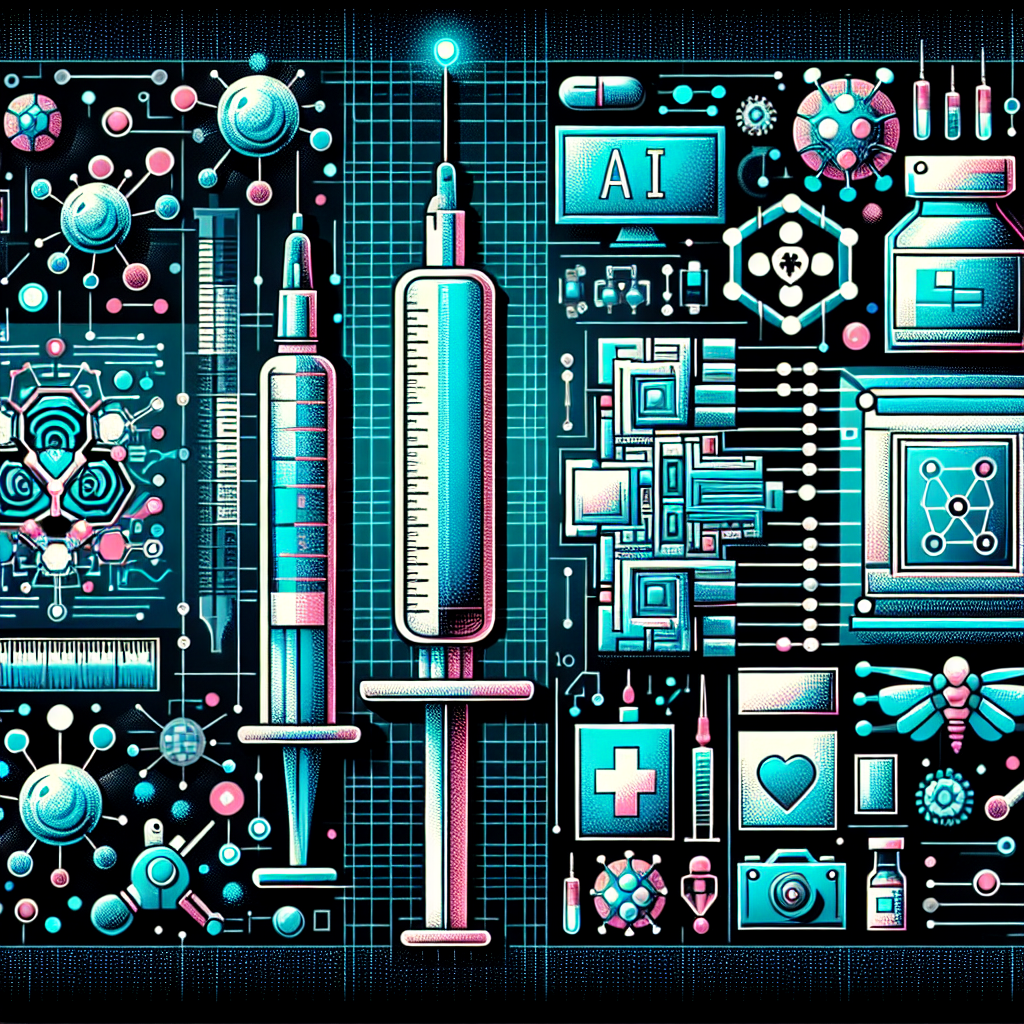Artificial Intelligence (AI) Integration: Improving Vaccine Development Processes
The development and distribution of vaccines have always been critical in combating infectious diseases and preventing epidemics. However, the traditional methods of vaccine development are time-consuming, costly, and often inefficient. With the advancements in technology, particularly in the field of artificial intelligence (AI), there is a growing opportunity to revolutionize the vaccine development process.
AI has the potential to streamline and accelerate every stage of vaccine development, from target identification to clinical trials and post-market surveillance. By leveraging AI technologies, researchers can analyze vast amounts of data, predict potential vaccine candidates, and optimize clinical trial designs. This can significantly reduce the time and resources required to bring a new vaccine to market.
One of the key areas where AI can make a significant impact is in the identification of vaccine targets. Traditional methods of target identification rely on trial and error, which can be time-consuming and inefficient. AI, on the other hand, can analyze large datasets of genetic and biological information to identify potential vaccine targets with a high degree of accuracy. This can help researchers prioritize their efforts and focus on the most promising candidates, ultimately speeding up the vaccine development process.
Another area where AI can improve vaccine development is in the optimization of clinical trials. Clinical trials are essential for testing the safety and efficacy of new vaccines, but they can be costly and time-consuming. AI can help researchers design more efficient and effective clinical trials by analyzing patient data, predicting outcomes, and identifying potential risks. This can help researchers recruit the right participants, reduce the number of trial subjects needed, and improve the overall success rate of clinical trials.
AI can also play a crucial role in post-market surveillance by monitoring vaccine safety and effectiveness. By analyzing real-world data from electronic health records, social media, and other sources, AI can detect potential adverse events early on and help regulators take prompt action to protect public health. This can improve the overall safety and effectiveness of vaccines and enhance public trust in vaccination programs.
Overall, the integration of AI into the vaccine development process has the potential to revolutionize the way vaccines are developed, tested, and distributed. By leveraging AI technologies, researchers can accelerate the pace of vaccine development, improve the quality of clinical trials, and enhance post-market surveillance. This can ultimately lead to the development of safer, more effective vaccines that can protect populations against infectious diseases more efficiently.
FAQs:
1. What is artificial intelligence (AI) and how is it used in vaccine development?
AI is the simulation of human intelligence processes by machines, particularly computer systems. In vaccine development, AI is used to analyze large datasets of genetic and biological information to identify potential vaccine targets, optimize clinical trial designs, and monitor vaccine safety and effectiveness in real-time.
2. How can AI improve the vaccine development process?
AI can improve the vaccine development process by streamlining target identification, optimizing clinical trials, and enhancing post-market surveillance. By analyzing vast amounts of data and predicting outcomes, AI can help researchers prioritize their efforts, design more efficient clinical trials, and detect potential adverse events early on.
3. What are the benefits of integrating AI into vaccine development?
The integration of AI into vaccine development can lead to faster development timelines, reduced costs, and improved vaccine quality. By leveraging AI technologies, researchers can accelerate the pace of vaccine development, improve the success rate of clinical trials, and enhance post-market surveillance, ultimately leading to the development of safer, more effective vaccines.
4. Are there any challenges to integrating AI into vaccine development?
While AI has the potential to revolutionize the vaccine development process, there are still challenges that need to be addressed. These include the need for high-quality data, ethical considerations around data privacy and transparency, and regulatory hurdles in implementing AI technologies in healthcare settings.
5. What are some examples of AI applications in vaccine development?
Some examples of AI applications in vaccine development include the use of machine learning algorithms to predict potential vaccine targets, the optimization of clinical trial designs using AI-powered simulations, and the monitoring of vaccine safety and effectiveness through real-world data analytics.
In conclusion, the integration of AI into the vaccine development process has the potential to revolutionize the way vaccines are developed, tested, and distributed. By leveraging AI technologies, researchers can accelerate the pace of vaccine development, improve the quality of clinical trials, and enhance post-market surveillance. This can ultimately lead to the development of safer, more effective vaccines that can protect populations against infectious diseases more efficiently.

